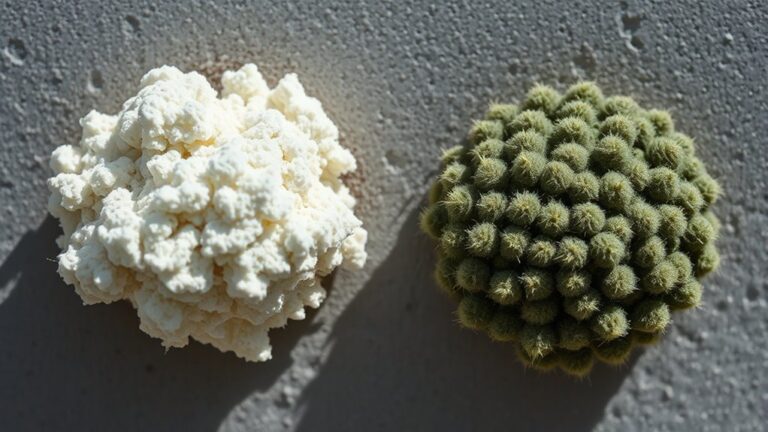Your gut isn’t just digesting food—it’s a battleground where balance tips into inflammation, and science just uncovered why. Dysbiosis, that messy imbalance of gut bacteria, kicks off trouble as poor diets or antibiotics wipe out the good microbes. Stress piles on, turning your gut into a reactive mess, while additives in processed foods poke holes in its delicate lining. Even your immune system gets confused, attacking harmless bacteria as threats. But here’s the twist: fixing it isn’t as hard as you’d believe.
Dysbiosis as a Primary Contributor to Gut Inflammation
Should your gut’s been feeling off lately, dysbiosis could be the culprit. Dysbiosis happens as soon as your gut microbiota—the trillions of bacteria in your digestive system—gets out of balance, leading to gut inflammation.
Poor microbial diversity, often from bad dietary habits or antibiotic use, weakens gut health and triggers inflammatory responses. This imbalance can increase intestinal permeability, letting harmful substances leak into your bloodstream, worsening conditions like inflammatory bowel disease (IBD).
Your gut’s delicate ecosystem thrives on variety, so low microbial diversity disrupts its harmony. But you’re not powerless—probiotics and smarter food choices can help restore balance.
Focus on nourishing your microbiome, and you’ll likely ease inflammation and strengthen your gut barrier. Small changes make a big difference in calming those inflammatory fires.
Impact of Poor Diets on Microbial Balance
Many of the foods you eat daily could be quietly upsetting your gut’s delicate balance. High-inflammatory dietary patterns, like processed foods and sugary snacks, disrupt your gut microbiome, leading to gut dysbiosis and increasing the risk of inflammatory bowel diseases.
These choices starve good bacteria while feeding harmful ones, altering your microbial composition. But small dietary interventions can help. A Mediterranean-like diet, packed with fiber intake from fruits, veggies, and whole grains, supports a healthier gut.
Watch out for dietary additives like emulsifiers—they sneak into ultra-processed foods and worsen inflammation. Cutting back on red meat and boosting fiber can reduce flare-ups in inflammatory diseases.
Your gut thrives on simple, wholesome foods—give it what it needs, and it’ll thank you.
Role of Antibiotics in Disrupting Gut Microbiota
While antibiotics can save lives by fighting infections, they don’t discriminate—wiping out harmful bacteria along with the good ones your gut relies on.
This antibiotic use disrupts your gut microbiota, leading to dysbiosis, a microbial imbalance that can trigger gut inflammation. Studies show it reduces microbial diversity, letting pathogenic organisms thrive and weakening your intestinal barrier.
The result? Increased intestinal permeability, which fuels gut inflammation and raises your risk of inflammatory bowel disease (IBD). Even short courses, especially in initial life, can have lasting effects, like gastrointestinal disturbances later on.
Antibiotic-induced changes also make it harder for your gut to recover, leaving you vulnerable to chronic issues. Be mindful of overusing them—your gut’s health depends on that delicate balance.
Stress as a Trigger for Gut Inflammation
As you’re stressed, your gut feels it too—because stress doesn’t just mess with your mind, it directly impacts your digestive system.
Once stress kicks in, your body’s fight-or-flight response can wreak havoc on your gut, leading to inflammation and even worsening conditions like Crohn’s disease or ulcerative colitis.
Here’s how stress stirs up trouble:
- Gut-brain axis: Stress signals from your brain disrupt gut function, triggering an immune response that fuels gut inflammation.
- Dysbiosis: Chronic stress alters your gut microbiota, pushing it out of balance and promoting harmful bacteria.
- Leaky gut: Stress increases intestinal permeability, letting toxins slip into your bloodstream and spark inflammation.
- IBD flare-ups: In case you already have inflammatory bowel disease (IBD), stress can trigger painful symptoms.
Your gut and brain are deeply connected, so managing stress is key to keeping your digestive system calm.
Pathogenic Shift From Commensal to Infectious States
Each time your gut’s microbial balance gets thrown off, harmless bacteria can turn into troublemakers, sparking inflammation and discomfort.
This pathogenic shift happens at the point that commensal microbes, which usually live peacefully in your gut microbiome, turn into infectious states due to dysbiosis.
Factors like antibiotics or poor diet disrupt microbial populations, letting bad bugs take over. Some bacteria, like certain E. coli strains, flip from helpful to harmful, attacking your intestinal epithelial barrier.
Without enough short-chain fatty acids—produced by good bacteria—your immune response weakens, making inflammation worse.
The result? Chronic gut issues and more damage.
It’s like a neighborhood where friendly neighbors suddenly cause chaos.
Keeping your gut balanced helps prevent this shift, so focus on nurturing the good microbes to stay healthy.
Reduced Microbial Diversity and Inflammation
At the time your gut’s microbial balance gets disrupted, it doesn’t just risk turning harmless bacteria into troublemakers—it can also shrink the variety of microbes inhabiting there.
Reduced microbial diversity weakens your gut health, making it harder to fight inflammation. As dysbiosis sets in, your gut microbiota loses its ability to produce enough short-chain fatty acids, which normally keep your intestinal barrier strong and inflammation in check. This imbalance is often linked to conditions like inflammatory bowel disease (IBD), where a less diverse microbiome worsens symptoms.
- Fewer microbes mean more inflammation: A balanced microbiome protects your gut, but losing diversity can trigger chronic inflammation.
- Short-chain fatty acids drop: These key anti-inflammatory compounds rely on diverse gut bacteria.
- Dysbiosis fuels IBD: Low diversity often accompanies IBD, making flare-ups more likely.
- Probiotics can help: Restoring microbial diversity through probiotics could ease inflammation and repair gut health.
Your gut thrives on variety—if it’s missing, inflammation follows.
Immune Response Dysregulation Due to Gut Imbalance
Every time your gut’s microbial balance gets thrown off, it doesn’t just upset digestion—it can also confuse your immune system.
Dysbiosis, an imbalance in your gut’s commensal microbiota, disrupts immune tolerance, making your body attack harmless bacteria. This triggers inflammation, worsening conditions like IBD.
Your genetic predispositions play a role too—some people’s immune systems overreact to minor imbalances, sparking chronic gut issues.
As your gut barrier function weakens, harmful substances leak through, further fueling the immune response.
Environmental factors, like diet or antibiotics, can tip the scales, but fixing the imbalance often helps calm inflammation.
Focus on nourishing your gut with probiotics and fiber to restore harmony.
Small changes can make a big difference in keeping your immune system from overreacting.
Environmental Factors Affecting Gut Barrier Integrity
Though your gut’s lining is tough, everyday exposures can weaken it without you realizing. Environmental factors like antibiotic use, dietary changes, and urban settings disrupt your gut microbiota, leading to inflammation and a leaky barrier.
Your immune system relies on a balanced microbiome, but modern existence often throws it off track.
- Antibiotics: Overuse kills good bacteria, letting pathogenic microbes take over and trigger immune responses.
- Processed foods: High-fat, low-fiber diets reduce microbial diversity, harming barrier integrity.
- Urban surroundings: Less exposure to diverse microbes weakens immune development, increasing inflammation risks.
- Toxins: Chemicals in food or water can damage the gut lining, making it more permeable.
Small shifts in your environment or habits can have big impacts. Paying attention to these factors helps keep your gut—and you—healthier.





